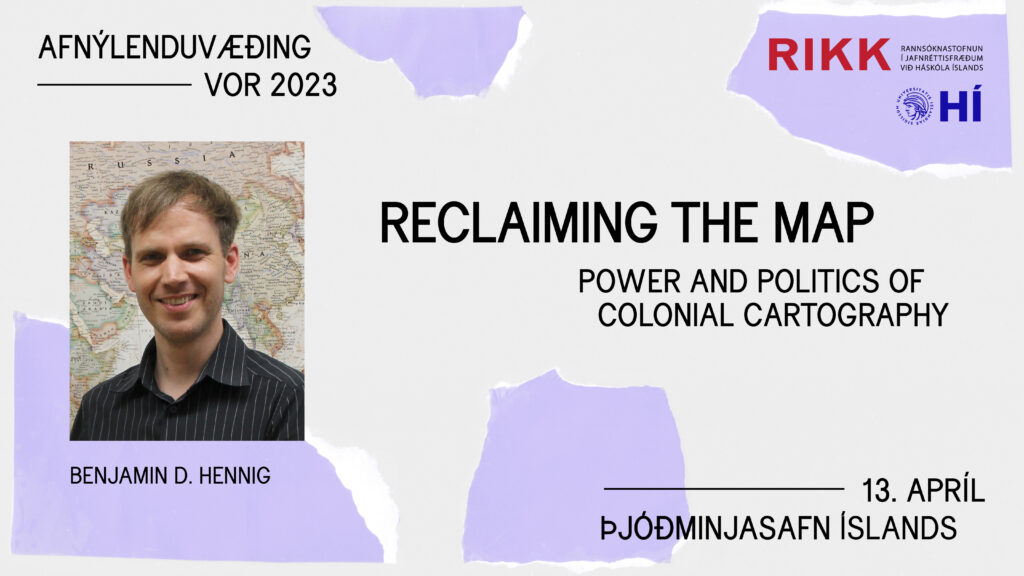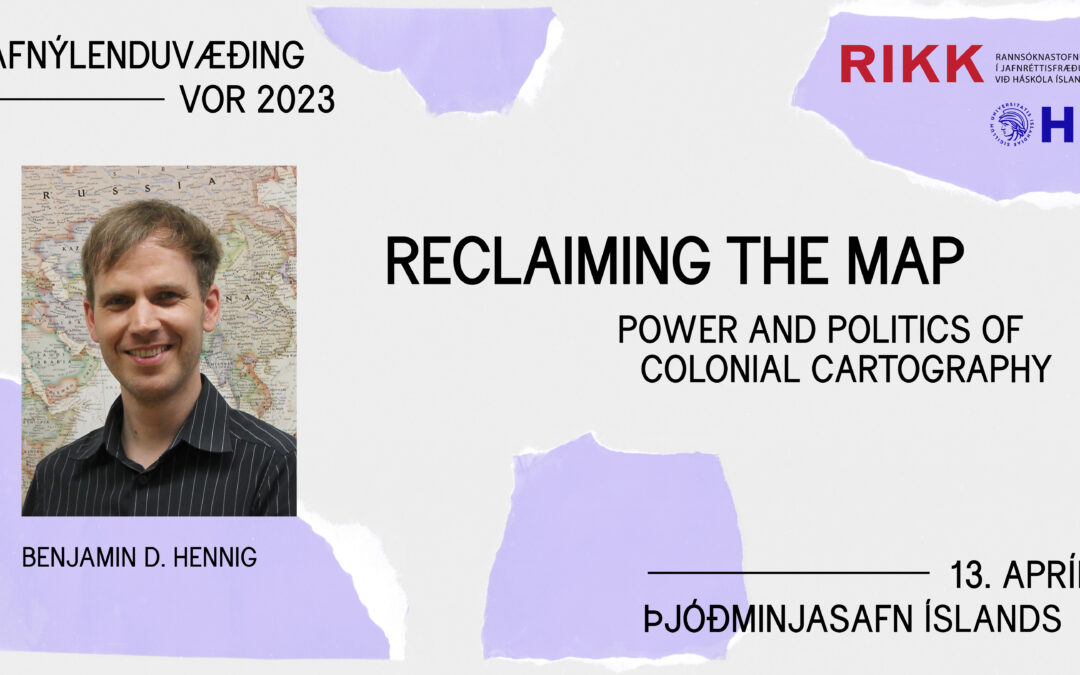
Benjamin D. Hennig is the sixth lecturer of the RIKK – Institute for Gender, Equality and Difference at the University of Iceland lecture series on decolonialism in spring 2023. His lecture is titled “Reclaiming the Map. Power and Politics of Colonial Cartography” and will be held at 12–13 on Thursday 13 April, at the National Museum of Iceland.
Maps are often perceived as the ultimate neutral depictions of geographic realities. Not only is this a common misconception of what cartography does, but also is the idea of one objective geographic reality a questionable concept. Space is not an objectively existing entity, but a human construct that attaches meanings to places, creates and shapes their identities. Today’s maps of the world are heavily shaped by attributions of colonialism. Map projections advanced in times when Europe’s imperialist conquest of the globe began and when projections such as Mercator’s world map became the persistent cartographic image that is still being used today. And colonial powers started putting places onto these new world maps, using their own placenames and descriptions that mostly ignored or deliberately eradicated the indigenous identities of places. This contribution seeks to provide an overview of these processes, show in selected examples how such ‘colonial cartographies’ have shaped our views of the world, and how a more critical approach to cartography helped more recently to ‘reclaim the map’ and restore identities of places that were long lost to the geographies that they were once attached to by their native populations.
Benjamin Hennig is a geographer interested in social and spatial inequalities, humanity’s impact on the earth, global sustainability and the development of concepts for analysing, visualising and mapping these issues through the use of Geographic Information Systems (GIS), remote sensing and cartographic methods. He was educated at the Universities of Cologne and Bonn, completed his PhD at the University of Sheffield, and now works as a Professor of Geography at the University of Iceland, as well as being an honorary research associate at the University of Oxford. He is also involved in the Worldmapper project (worldmapper.org)
Further information on the lecture series can be found on RIKK’s website – rikk.hi.is – and the institute’s Facebook-page. The lecture series is organised with the cooperation of the National Museum of Iceland. A recording of the lecture will be made available on RIKK‘s website.
